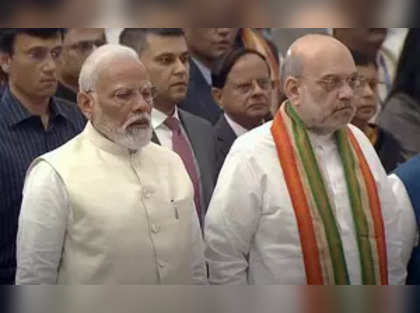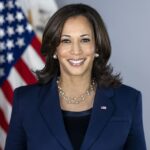By Dr. Gyan Pathak
Wittingly or unwittingly, Prime Minister Narendra Modi and Union Home Minister Amit Shah have been continuously raising the issue of infiltration during their election campaigns. They talk about “Bangladeshi Muslim infiltration” in their rallies, but little knowing the tribal psyche that has developed during the last three centuries of their struggle against “Dikus” (outsiders) who infiltrated into Jharkhand, grabbed their resources, and interfered with their culture and autonomy. All non-Adivasis are infiltrators for them, and on what Modi-Shah duo are emphasizing, is at best, just another addition. It has alarmed the tribes and they seem to be much more united against the BJP in this election.
Modi-Shah duo has just opened their old wounds. They have always been struggling against the outsiders – the non-Jharkhandi’s. PM Narendra Modi has started his campaign on November 4, in the midst of the first phase of Vidhan Sabha election, which is scheduled for November 13, when 43 of the 81 assembly seats would go to polls. In his speech, PM Modi dubbed JMM-Congress-RJD coalition, which is nationally known as INDIA bloc, as “Ghuspaithiya Bandhan” (Coalition of infiltrators).
Union Minister of Home Amit Shah has also been harping the same cord for quite some time and alleging that the ruling JMM-Congress-RJD coalition have been encouraging Muslim infiltrators from Bangladesh and protecting them. Amit Shah also addressed election rallies on November 3, and promised that the Centre would soon roll-out Uniform Civil Code (UCC) but tribes of Jharkhand would be exempted. He even promised Sarna Code to the tribes which has been their old demand, distinct from the Hindu Code.
Amit Shah’s promise has just created big confusion among tribes and non-tribe population, since exemption to any community from UCC is contradictory to BJP’s and RSS’ earlier stand of One Nation One Code, or One Nation One Law. The message is now clear for all that UCC is basically against Muslim and Christian community, who are about 15 and 4 per cent in Jharkhand.
Communalisation of election on religious basis is the old BJP game, and hence, BJP leaders may hope for consolidation of Hindu votes to some extent in their favour. However, it may not help the BJP much in winning seats in the state due to its specific demography, where there is about 30 per cent of tribal population. It means almost half of the population of the state are composed of tribes, Christians, and Muslims. About 50 per cent of the population are Hindu votes, and among them more than half (25 per cent in total population) are Mahto community who have been demanding ST status for themselves for quite some time, which BJP rule at the Centre has been denying for a decade.
Mahto community is angry against the BJP, and a large number of them had recently voted against them in the Lok Sabha election 2024. It was one of the major factors of BJP’s loss of five seats in the state. Jharkhand Bhasha Khatiyan Sangharsh Samiti (JBKSS) led by Jairam Mahto cut substantial vote base of BJP among Mahto Community. This JBKSS has now split into two – Jharkhand Loktantrik Krantikari Morcha (JKLM) led by Jairam Mahto and the new Jharkhandi Bhasha Khatiyan Sangharsh Samiti (new JBKSS) led by Sanjay Mehta. Both the groups would cut BJP’s vote.
The element in the Jharkhand politics is that Mahto community and all other tribes can’t vote for the same party, since tribes are apprehensive of losing their share in reservation if Mahto community is given tribal status as per their demand. It is in this backdrop, the statements of Modi-Shah duo could be better understood when they say that JMM-Congress-RJD coalition or INDIA bloc would do away with tribal reservation. Nevertheless, the tribes of Jharkhand seem to be more secure with JMM-Congress than the BJP. One can see this in the BJP’s losing five tribal seats in the Lok Sabha Election 2024.
There are 28 reserved seats of Scheduled Tribes in the state, and the BJP has only 2 seats in the outgoing Vidhan Sabha. No wonder, BJP is trying hard to make inroads among the tribes. The JMM leader Kolhan Tiger Champai Soren from the Kolhan region, where there are 14 tribal seats, has been tempted by the BJP to join hands with them. Champai contesting as BJP candidate now, and the party hopes that he could benefit the party in winning more tribal seats. However, among the tribes, it seems, Champai has lost his value. He is now seen as defector to the tribal cause. He was valued only because he has been standing firm in defending the tribal cause in the Kolhan region, but now is seen fighting with them joining hands with their enemies. Champai’s switchover therefore may not be so beneficial for the BJP as its leaders hope.
JMM-Congress-RJD-CPI(M) coalition on the ground seems to be stronger than the BJP-AJSU-JD(U)-LJP(Ram Vilas) in the changed political scenario on the ground level in the mid-campaign for the first phase. The second phase of election campaign has just started for 38 seats scheduled to be held on November 20.
In NDA, BJP is contesting on 68 seats, All Jharkhand Students Union (AJSU) on 10 seats, Bihar Chief Minister Nitish Kumar’s Janata Dal (United) on 2 seats and Chirag Paswan led Lok Janshakti Party (Ram Vilas) on 1 seat. In the INDIA bloc, JMM is contesting in 41 seats, Congress in 30, Rashtriya Janata Dal (RJD) in 6 and Communist Party of India (Marxist-Leninist) in 4 seats. (IPA Service)




 Trump Moves Closer to Election Win as Harris Cancels Speech
Trump Moves Closer to Election Win as Harris Cancels Speech 